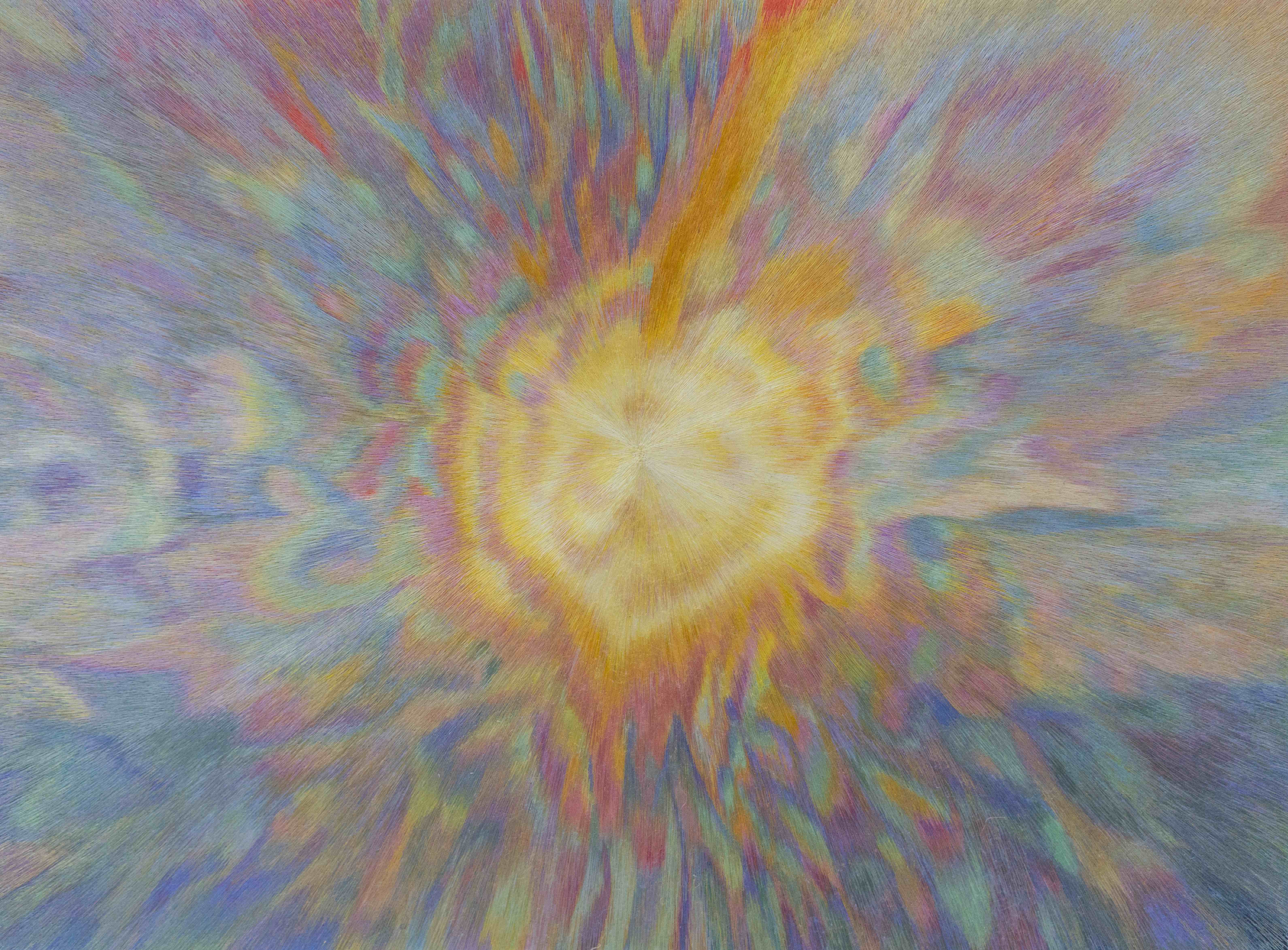Booth 75
YveYANG Gallery is thrilled to make its debut at Liste Art Fair Basel with a duo presentation featuring Huidi Xiang (b. 1995, Chengdu, China) and Wang Ye (b. 1991, Changsha, China).
YveYANG’s booth presents a poignant tableau, intertwining the maxim of the tomato, a sculptural series by Huidi Xiang, with a suite of new silk embroidery works by Wang Ye. Together, their practices explore the shifting terrain between hope and disillusionment, offering resonant reflections on the emotional and cultural complexities faced by a new generation of individuals navigating unstable cultural intersections.
Xiang’s sculptures transform familiar domestic objects—pincushions, toys, digital relics—into uncanny forms that blur the line between comfort and control. At the heart of the maxim of the tomato is the iconic tomato-shaped pincushion, reimagined as a symbol of emotional labor, protection, and latent violence. Its cheerful surface masks sharpness within, drawing attention to the often invisible tensions embedded in caregiving, assimilation, and aestheticized systems of regulation.
Wang Ye’s new embroideries echo this duality. Delicate, refined, and meditative, these works are woven from handmade silk sourced from now-defunct workshops in the artist’s hometown in Hunan, China. Their luminous surfaces evoke warmth and guidance while also disorienting with their intricate density. Emotionally charged and technically exacting, they reflect a state of fractured longing—a search for anchoring forms within unstable cultural and aesthetic frameworks.
For both artists, the tension between promise and disenchantment parallels the diasporic experience. Many artists born in China and educated in the West initially find in contemporary art a seemingly welcoming system. Over time, however, the limits of that framework come into focus—unable to fully accommodate complex identities, lived histories, and embodied heritage. Their works ask: To which system does their art belong? Can it represent who they are without flattening or erasure?
In Wang’s embroideries, made in collaboration with traditional artisans, these questions grow more acute. Once inhabited by contemporary imagery, does silk embroidery remain a traditional form, or does it become something else entirely? This ambiguity—between continuity and transformation—becomes both a source of innovation and tension.
This inquiry extends beyond the artists to the institution that presents them. Founded in New York by a Chinese-born gallerist, YveYANG operates within one of the world’s most canonical art ecosystems. The gallery works to transcend the limitations of identity, market, and cultural positioning—to exist between global relevance and personal authenticity. Yet it too must ask: is this ambition a sustainable reality, or an elusive mirage?
In Xiang’s playful sculptures, Wang’s radiant embroideries, and the gallery’s own evolving position, the same question persists: How does one locate selfhood within a system that oscillates between invitation and exclusion? These works do not offer closure, but instead trace the contours of emotional labor, cultural inheritance, and the fragile balance between illusion and belonging.
Huidi Xiang (b. 1995, Chengdu, China) is a sculptor based in Brooklyn, New York. Huidi holds an MFA in Art from Carnegie Mellon University and a BA in Architecture from Rice University. Huidi’s work has been exhibited at the Buffalo Instititute for Contemporary Art (Buffalo, NY), Bronx Museum of the Arts (Bronx, NY), KAJE (Brooklyn, NY), Lydian Stater (Long Island City, NY), The Elizabeth Foundation for the Arts (New York, NY), and Contemporary Calgary (Calgary, Canada). She has presented commissioned works at the Jing’an International Sculpture Project (Shanghai, China, 2024), X Museum Triennial (Beijing, China, 2023), and OCAT Biennale (Shenzhen, China, 2021). Huidi's work has been reviewed and featured on Artforum, ArtReview, Family Style, Hyperallergic, among others.
Wang Ye (b. 1991, Changsha, China) explores dual identities and the evolving role of traditional folk art in contemporary female labor and aesthetics. Collaborating with hometown embroiderers, Wang uses silk embroidery as their primary medium. They hold a BFA from the Central Academy of Fine Arts (2013) and an MFA from Yale School of Art (2017).

